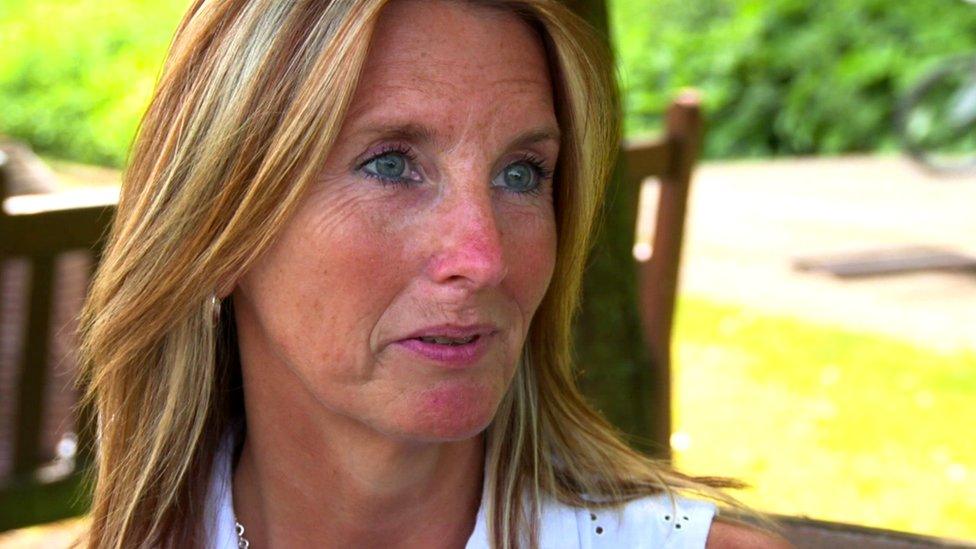Eating disorders treatment targets met for two out of three children
- Published

Young people are most at risk of developing eating disorders
Around two-thirds of children and young people with eating disorders are starting urgent treatment within one week, figures from last year show.
NHS England introduced new waiting time targets in 2016 to ensure fast treatment for under-19s with disorders like anorexia and bulimia.
But eating disorder charity Beat said too many young people were still waiting too long for treatment.
And it said many others were suffering in silence.
This is the first time data has been released on waiting times for children and adolescents with eating disorders in England since the targets were introduced.
The targets state that there should be no more than one week between referral and the start of treatment for urgent cases and four weeks for routine cases.
Swift care
After one year the stats show that, on average, 65% of young patients started urgent treatment within one week during 2016-17 - equivalent to 660 children and adolescents.
A total of 10% had to wait longer than four weeks to start "urgent" treatment, with 13 individuals delayed for more than 12 weeks for their first treatment.
For routine cases, 73% of patients started treatment within four weeks last year - equal to 3,102 youngsters.
One in four had to wait longer than the target four weeks for routine treatment and 5% waited three months or more.
NHS England said it showed that "a substantial proportion of children and young people are receiving the care they need swiftly".
By 2020, 95% of children and young people should be treated within these time frames, NHS England says.
'Skewed'
Eating disorders can develop at any age but young people are most at risk of developing these serious mental illnesses, with girls making up around 80% of cases.
In total in the UK, 725,000 people are thought to be affected by eating disorders.
An NHS England spokesman said targets were part of a drive to improve services at a local and national level.
"Alongside the new waiting time standard, 67 dedicated community eating disorders services are being developed and recruitment to get the teams up to full capacity is well under way.
"Our goal is to ensure that increasing numbers of children and young people will receive swift, effective eating disorder treatment," he said.
Tom Quinn, from charity Beat, said the number of people not getting treatment could be much higher than the figures suggest.
"The report shows only those who have been referred to eating disorder services and we know that many are not referred for treatment when they should be, or are still suffering in silence.
"There is more work to be done to ensure that the figures are accurate and also not skewed by sufferers being denied access to treatment."
He said he was pleased the government had started the process of improving access to treatment for young people - but there was more that could be done.
"Of course, eating disorders do not disappear when someone becomes an adult, and so we must see equivalent targets established across all age groups.
"Whoever forms the next government must ensure there is adequate funding and staffing levels so everyone gets the treatment they deserve."
'Phenomenal'
Dr Dasha Nicholls, chair of the Royal College of Psychiatrists' eating disorders faculty, said the figures showed "a dramatic improvement" in accessing child and adolescent eating disorder services.
"This is a phenomenal achievement when compared to standard healthcare targets such as the 18 week wait for non-urgent hospital operations."
"There is work to be done, but getting to this point just 12 months into a 5-year plan is extremely encouraging and a step in the right direction."
- Published17 June 2016

- Published9 April 2014
